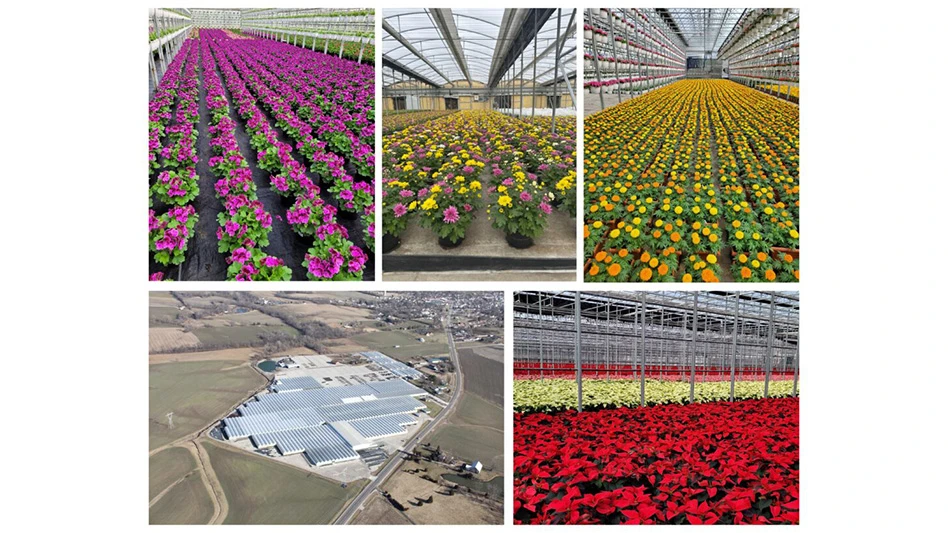
Photo courtesy of Society of American Florists
Leadership from the Society of American Florists (SAF) and the Association of Floral Importers of Florida (AFIF) recently pressed Congress to renew the Generalized System of Preferences (GSP), a trade program that enables duty-free access to imported flowers.
Renewing the GSP could save the U.S. floral industry an estimated $20 million annually, providing stability and enabling reinvestment within the industry.
The GSP program, which previously eliminated a 6.8% tariff on Ecuadorian roses thanks to an industry effort led by SAF, has been expired since January 2021.
"Our industry has been pushing for this for so long, to no avail yet, so it was encouraging to hear that at least we’re being heard, that our continued outreach matters," said SAF CEO Kate Penn.
Penn and SAF senior lobbyist Joe Bischoff met with members of the U.S. Congress, House Ways and Means Committee staff and Senate Finance Committee representatives Sept. 10 to discuss the benefits of GSP for both florists and consumers.
The floral industry continues to lobby for GSP as an impactful legislative solution that supports price stability and growth.
AFIF Executive Vice President Christine Boldt also had meetings with congressional members. Highlighting the fiscal impact, Boldt noted the lapse in the GSP has cost the industry significant funds over the past four years, resulting in trickle-down effects of higher costs for end consumers and stagnation for businesses.
"They haven’t been able to put money into their people or expand the number of employees they hire," Boldt said. "They’ve not been able to add distribution centers or invest in their warehouses."
Despite the productive discussions, no guarantee was given that the GSP will be renewed by year-end.
"We’re hearing that there is an appetite to move these trade programs, and that the GSP is probably at the top of the list," Bischoff said.
However, in a lame-duck year, the prospect for swift action is uncertain, with some congressional aides indicating that compromises may be necessary.
SAF will continue its efforts, with key industry leaders, including SAF President Oscar Fernandez, returning to Washington on Nov. 19 for further discussions.
In the absence of a resolution, GSP renewal will also be a central agenda item at SAF’s Congressional Action Days on March 17 and 18, 2025.
Bischoff encouraged floral professionals to reach out to their elected officials locally, especially those on the House Ways and Means and Senate Finance Committees, to emphasize the importance of GSP renewal.
"Your advocacy doesn’t end in Washington," Bischoff said. "It’s really vital that they deliver that at home."
For more information on the GSP renewal efforts and how to support the floral industry, visit safnow.org.
Get curated news on YOUR industry.
Enter your email to receive our newsletters.Latest from Garden Center
- GIE Media Horticulture Group wins five regional 2025 Azbee Awards of Excellence
- Terra Nova Nurseries introduces rust-free and disease-resistant heucherella
- John T. Nickel, founder of Greenleaf Nursery Co., passes away at 89
- Garden Media Group announces sixth annual Women in Horticulture Week
- Star Roses and Plants announces National Knock Out Rose Day
- The Growth Industry Episode 4: How federal budget cuts are affecting horticulture nonprofits
- Pennsylvania Horticultural Society shares top gardening trends from 2025 Philadelphia Flower Show
- California Spring Trials 2026 dates announced








